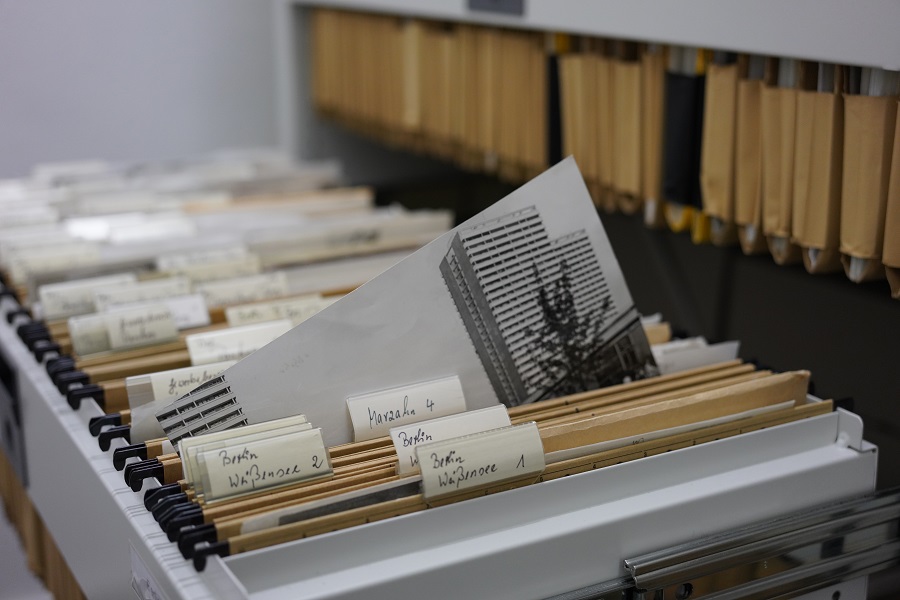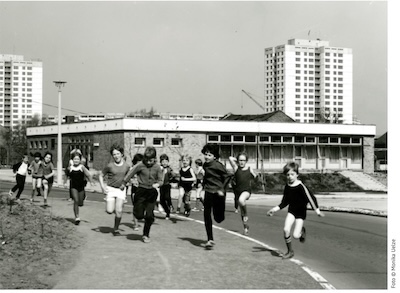
Kerstin Brückweh

IRS (Erkner)/Wiss.Samml., Bildarchiv (Berlin-Alt-Marzahn, D1_1_5_2-007, photographer: Monika Uelze, around 1985)
IRS (Erkner)/Wiss.Samml., Bildarchiv (Berlin-Alt-Marzahn, D1_1_5_
The study of cities and spaces in historical perspective lies at the core of this professorship. The joint appointment represents, since 2023, a link between the European University Viadrina and the Leibniz Institute for Spatial Social Research (IRS) in Erkner, particularly in my role as head of the Contemporary History and Archive Research Area at the IRS.
The question of how expert knowledge and everyday actions, systems and lifeworlds, ideas and practices are connected forms the guiding thread of my research across the various fields and periods of investigation—from my doctoral thesis Mordlust, on the history of violence in the 20th century across different German contexts, to my habilitation Menschen zählen (“counting people”/“people count”), a history of British knowledge production in the 19th and 20th centuries, and to research into the Longue Durée of 1989/90 (and thus the period before, during and after German reunification).
1. Long periods of investigation and methodological diversity: One current focus is on (post)socialist societies and their transformation. Methodologically, I am particularly interested in the use of mapping in historical research and the development of so-called social data as sources for contemporary history. To this end, I am the spokesperson for a recently founded working group in the Association of German Historians.
2. Interdisciplinarity and internationality: Over my six years living and working in London, I came to appreciate an external perspective on Germany, and always strive to contextualise German history. I am currently incorporating this broad experience in interdisciplinary research to the cultural studies environment at Viadrina and the social sciences environment at the Leibniz Institute in Erkner, always asking what is typically historical in these contexts.
3. Support in research and teaching: In the context of my academic expertise and advisory work, I enjoy close collaboration and intellectual exchanges with students, doctoral candidates and postdocs, through which we mutually develop our own research questions and interests. The focus is less on quantity and more on quality, both with regard to the research and the career prospects of the "young researchers".
4. Science communication and participatory research: Through a combination of work both within and beyond academia, I have developed a particular interest in participatory approaches to research. This included a 2020 listening tour through former East Germany, which resulted in a book (translated into Korean in 2024), as well as my leadership of the Studium Generale at the Berlin University of Applied Sciences in my capacity as Professor of Economic and Social History.
5. Research infrastructures and archives: My work on the history of knowledge in the social sciences and the secondary analysis of social data as contemporary historical sources has increasingly raised the question of infrastructures of and for research. This has developed into an interest for NFDI4Memory and I am looking forward to developing a revised collection strategy with the Archive team at the IRS in Erkner, whose unique archive on the construction and planning history of the GDR has long since extended beyond the rupture of 1989/90.